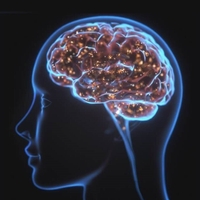
Meditation eases menopausal symptoms and insomnia
Meditation may help ease insomnia and other menopause symptoms, according to a new study published online in Advances in Integrative Medicine (1).
In a small randomised controlled trial, 47 women with clinical insomnia and menopausal symptoms were randomised into two groups: an intervention group who practised sleep hygiene with daily Raja Yoga meditation (45 minutes/day) and a control group who only practised sleep hygiene.
Raja Yoga meditation is a simple, open-eyed meditation practise that uses the breath as an anchor to elicit physical and mental relaxation (2). Sleep hygiene included a set of behavioural and environmental recommendations intended to promote healthy sleep (e.g. avoid caffeine, exercise regularly, eliminate noise from the sleeping environment, maintain a regular sleep schedule) (3).
The results of the trial demonstrated that menopausal women who practised daily meditation and sleep hygiene for eight weeks had significant improvement in total menopausal symptom scores compared to women in a control group who only practised sleep hygiene. While both groups experienced improvements in the intensity of insomnia symptoms, the meditation group had the greatest improvement in insomnia severity index scores (1).
The onset of menopause is associated with a variety of negative psychological and physical symptoms. Vasomotor symptoms account for up to 80% of symptoms in women entering menopause (4). They are considered at least partially responsible for sleep disorders, which affect 40 - 60% of women during the menopausal transition (5). These symptoms often persist for several years post-menopause with a considerable impact on the quality of life of menopausal women.
Menopausal symptoms often remain recalcitrant to conventional treatments. Additionally, conventional therapies such as hormone replacement therapy are associated with health risks, and many women are seeking alternative therapies including mind-body and herbal interventions (6).
Several studies have demonstrated that the practice of meditation by menopausal women improves depression, insomnia and the frequency and duration of vasomotor symptoms (7,8). Meditation also reduces cortisol response and cardiovascular disease risk factors in postmenopausal women (9).
Meditation may reduce menopausal symptoms by impacting sympathetic nervous system activation, parasympathetic nervous system functioning and stress reactivity (7,10). However, the beneficial effect of meditation on menopausal symptoms is not yet conclusive, due to the complexity of the metabolic, neuroendocrine and psychological effects of meditation (1,9,11).
The current study included a relatively small number of participants over a short period. However, the positive findings add to a growing body of evidence suggesting meditation and other mind-body therapies may be useful in managing insomnia and menopausal symptoms. Further studies are warranted to confirm the benefits of daily meditation on menopausal symptoms, insomnia and overall quality of life during the menopausal transition.






